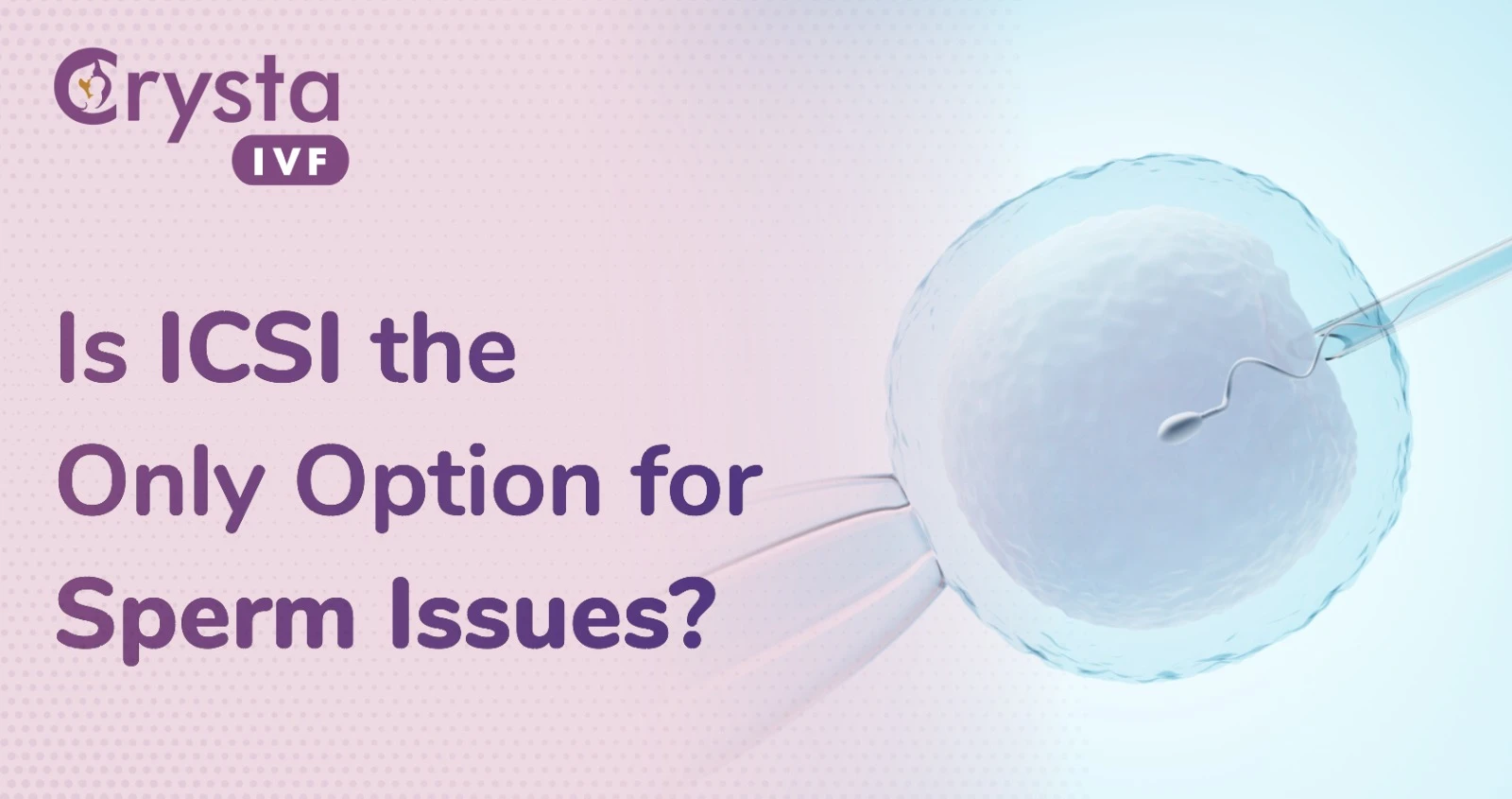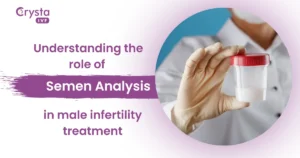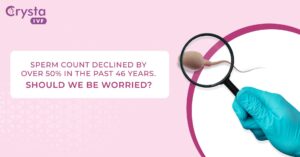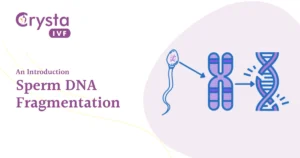Earlier infertility was considered to be associated with females only, but in fact, male partner contributes to almost half of all infertility cases. And, out of all male infertility cases, sperm issues are the major reason.
When faced with this challenge, it’s common to hear about a technique called Intracytoplasmic Sperm Injection (ICSI) that can help overcome the problem. However, many couples wonder if ICSI is the only option for their sperm issues.
The truth is, there are alternative treatments available, and each case must be evaluated individually to determine the best course of action.
So, let’s explore some of the options available for couples struggling with male-factor infertility and discuss their potential benefits and drawbacks.
Importance of sperm in fertilization
The importance of sperm in fertilization cannot be overstated. Sperm play a crucial role in the fertilization process, as they are responsible for delivering the genetic material needed for the creation of a new life. In natural conception, millions of sperm are released during ejaculation, but only a few hundred make it to the egg.
The sperm must navigate through the female reproductive tract and overcome numerous obstacles to reach the egg. Once there, they must penetrate the outer layer of the egg and fuse with it to initiate fertilization.
When & Why to Need Intracytoplasmic sperm injection (ICSI)
Intracytoplasmic sperm injection (ICSI) is a powerful technique used in assisted reproductive technology to achieve fertilization. It involves injecting a single sperm directly into an egg to promote fertilization.
ICSI is typically used in cases where the male partner has a low sperm count, poor sperm motility, or other issues that may affect fertilization. It can also be used in cases where previous IVF (In vitro fertilization) cycles have been unsuccessful.
In cases where natural conception is not possible, ICSI can offer hope to couples struggling with infertility. By injecting a single sperm directly into an egg, ICSI bypasses many of the obstacles that can hinder natural fertilization.
ICSI has been used successfully in cases of male infertility, where the sperm may be unable to penetrate the egg on its own. It can also be used in cases where there are structural or functional abnormalities in the sperm.
Explore more: What Happening To Sperm Counts Around The World
How is ICSI Performed?
- ICSI is performed in conjunction with IVF Treatment (in vitro fertilization) to increase the chances of successful fertilization.
- IVF process involves retrieving eggs from the female partner and collecting sperm from the male partner which are then fertilized together in a lab dish.
- In ICSI, a single sperm cell is selected and injected directly into the egg using a tiny needle. The ICIS process bypasses the natural fertilization process and ensures that a sperm successfully penetrates the egg.
- After the ICSI procedure, the fertilized eggs (embryos) are monitored in the lab for a few days before being transferred to the uterus.
While ICSI can increase the chances of fertilization and pregnancy, it’s important to note that it may not be necessary or appropriate for all couples undergoing IVF. Fertility specialists at Crysta IVF can help you to determine the best course of treatment based on your individual circumstances.
Alternatives to ICSI
When it comes to treating male infertility caused by sperm issues, IVF with ICSI is often seen as the go-to-solution. But while ICSI is an effective and reliable method of treating many cases of male infertility, it isn’t the only option.
Depending on the cause of the infertility, there are other treatments that may be more suitable.
Let’s explore some of these options:
Intrauterine Insemination (IUI)
One of the most effective & popular options is intrauterine insemination (IUI). In IUI, sperm are washed and concentrated and then inserted directly into the woman’s uterus during ovulation.
IUI is often used as a first-line treatment for couples with mild to moderate male factor infertility or unexplained infertility.
Intracytoplasmic morphologically selected sperm injection (IMSI)
IMSI is an advanced form of ICSI used to treat infertility. IMSI is a technique where the sperm is viewed under higher magnification, allowing for a more detailed examination of the sperm’s morphology.
While ICSI is still considered to be the standard method for infertility treatment, IMSI is becoming increasingly popular as an alternative due to higher success rate.
Testicular Sperm Aspiration (TESA)
TESA is an effective alternative to ICSI for couples dealing with male infertility. Unlike ICSI, TESA doesn’t require surgically extracting sperm from the testicles. Instead, a needle is inserted into the testicles and sperm is collected painlessly.
TESA is a relatively simple and cost-effective procedure that can be performed in just a few minutes. For couples struggling with male infertility, TESA can be a good option.
Percutaneous Epididymal Sperm Aspiration (PESA)
PESA is a minimally invasive procedure that involves removing sperm directly from the epididymis, the organ in which sperm is normally stored. This is then used to fertilize the eggs, resulting in a successful pregnancy in many cases.
PESA is less expensive than ICSI, has a higher success rate, and carries fewer risks. It is a great option for couples who are unable to conceive naturally, yet who wish to avoid the more invasive ICSI procedure.
Check it out: Importance of Semen Analysis in Male Infertility Treatment
How to Know Which Male Infertility Treatment is Right For You?
Sperm can be a major factor in infertility for couples trying to conceive. And as you know now that ICSI isn’t the only option for sperm issues, there are several treatment options available including medications & lifestyle changes.
When deciding on which infertility treatment is right for you, it is essential to consult an experienced fertility specialist as in Crysta IVF who can evaluate your specific situation and recommend the best course of action.

In cases, where the male partner has low sperm count, options like IUI, IVF & ICSI may be recommended. For more severe cases, procedures like TESA or PESA might require extraction of viable sperm for fertilization.
Additionally, IMSI may be used in conjunction with IVF to improve the chances of success. It is important to weigh the pros and cons of each treatment option and to discuss any concerns with the fertility expert at the top fertility center in India before making a decision.




